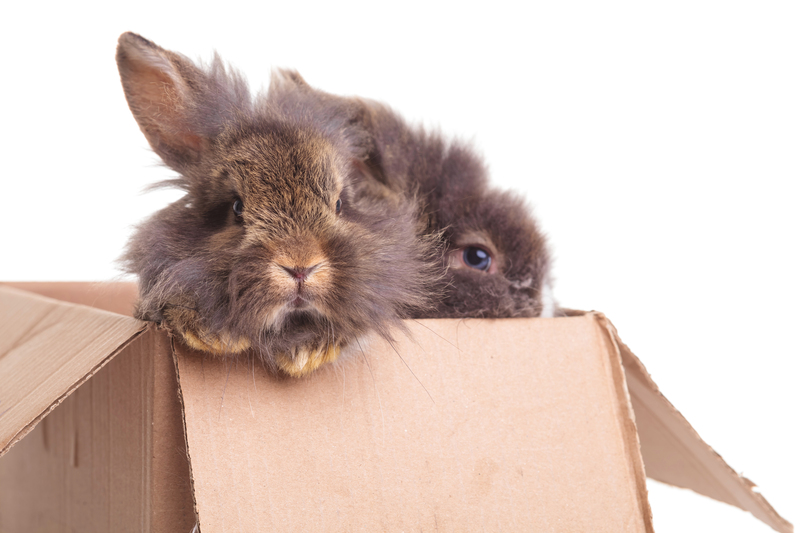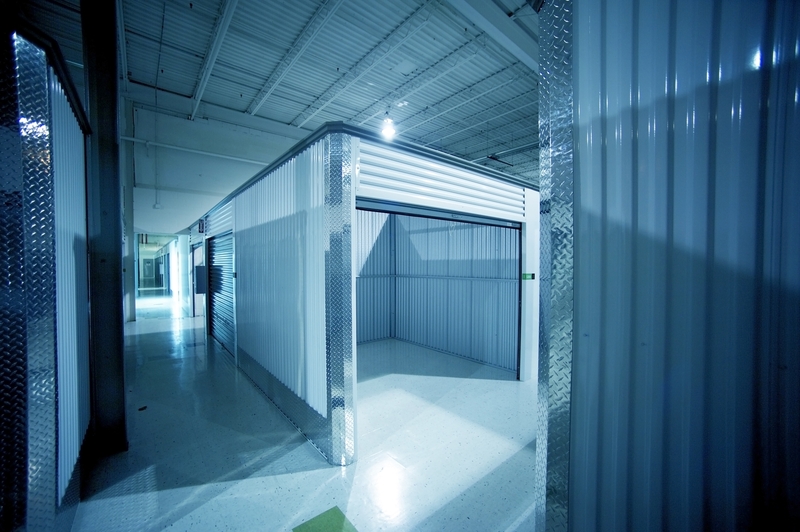The art of storing your freezer when it's off
Posted on 06/06/2025
The Art of Storing Your Freezer When It's Off
If you own a freezer, you already know how invaluable it is for food preservation and convenience. But what happens when your freezer needs to be turned off for a while? Whether it's due to a move, renovation, extended vacation, or a long-term power outage, knowing how to store a freezer when it's off is a crucial skill that can prevent damage, smells, mold, and ensure your appliance remains efficient for years to come. In this comprehensive guide, we'll discuss the art of storing your freezer when it's powered down, sharing essential tips, step-by-step processes, and expert advice to keep your freezer in pristine condition.

Why Is Proper Storage Important?
*Properly storing a freezer when it's off is about so much more than just unplugging it.* Neglecting the right maintenance steps can lead to:
- Unpleasant odors or sticky residues
- Mold and mildew growth
- Persistent stains and even corrosion
- Shortened appliance lifespan or mechanical issues
When Might You Need to Store a Freezer Offline?
Understanding when the art of storing your freezer when it's off comes into play will help you prepare appropriately. Some typical scenarios include:
- Moving to a new home
- Seasonal storage (e.g., lake house or holiday home)
- Extended travel or vacation
- Power outages lasting days or weeks
- Renovation or appliance upgrade
Step-by-Step Guide: How to Store Your Freezer When It's Off
1. Remove All Contents
The first and most essential step in storing your freezer when it's turned off is to empty it completely. Do not leave any food, even if you think you'll turn it back on "soon."
- Dispose of expired or perishable items.
- Transfer any salvageable food to another freezer or coolers with ice packs.
- If you're transporting food over a distance, use insulated containers to maintain safe temperatures.
2. Defrost the Freezer Thoroughly
Some freezers self-defrost, while others build up frost and require manual intervention.
- Unplug the freezer from the power source.
- Prop open the door and lay towels around the base to absorb water as the ice melts.
- For a quicker defrost, place a bowl of hot water inside (on a safe surface), but never use sharp objects to chip ice.
- Once all frost is gone, wipe down water with absorbent cloths.
3. Clean and Dry the Interior
A spotless freezer is vital for long-term storage.
- Mix a gentle cleaning solution: warm water with baking soda or a small amount of mild dish soap.
- Wipe all internal surfaces, including shelves, drawers, and gaskets.
- Don't forget the door seals, which can harbor crumbs and mold.
- Rinse with a damp cloth, then thoroughly dry the entire freezer inside and out.
- Remove and clean any removable bins, trays, or ice makers separately.
4. Address Odor Prevention
Even after cleaning, lingering scents can develop over time. To prevent freezer odor while it's off:
- Place an open box of baking soda or a few activated charcoal pouches inside the freezer to absorb odors.
- You can also use coffee grounds or a bowl of dry rice as alternative odor absorbers.
5. Leave the Door Slightly Ajar
One of the golden rules in the art of freezer storage when off is to never completely close the door for long periods.
- Prop the door open by using a rolled towel, bungee cord, or by wedging a non-slip object in the door frame.
- Many freezers have a built-in "storage" setting that locks the door ajar, but if not, the above solutions work well.
6. Consider Location and Covering
Where and how you store an unused freezer matters.
- Place the freezer in a dry, well-ventilated area (e.g., garage, basement, utility room).
- Avoid direct sunlight, excess heat, or damp environments which can damage the appliance's finish and mechanics.
- Cover the freezer loosely with a dust sheet or breathable cloth (never plastic) to keep out debris while allowing airflow.
7. Protect Power Cord and Components
If the appliance won't be used for months, take care with cords and electronics.
- Wrap the power cord securely and tape it to the back or inside the freezer to prevent trip hazards.
- Inspect for any fraying or wear--replace faulty cords before next use.
- If storing in a humid location, consider placing silica gel packets inside to absorb excess moisture.
8. Routine Checks
If you're storing your freezer for many months or a year, it's wise to inspect it occasionally.
- Open the door periodically to check for mold, dampness, or pests.
- Refresh any odor absorbers every 2-3 months.
- Ensure the door remains properly propped open.
What NOT To Do When Storing a Freezer Unplugged
Avoid these common mistakes to extend the life of your freezer:
- Never store food inside while unplugged.
- Don't leave the appliance in a moist or unventilated area without protection.
- Don't tape the door completely shut--this traps moisture.
- Never cover with plastic wrap--condensation is your enemy.
- Avoid storing outdoors, unless your specific model is designed for it.
- Don't forget to clean and dry thoroughly.
Extra Tips: Prepping for Transport or Long-Term Storage
If your freezer is being moved or kept in storage for a long time:
- Secure all detachable parts inside the freezer to prevent damage in transit.
- Keep the unit upright to avoid compressor oil leaks.
- Label the appliance as "CLEAN & EMPTY, DOOR AJAR" to alert movers or storage staff.
- When reinstalling, allow the freezer to sit upright for at least 4 hours (preferably 24) before plugging back in, especially if it's been on its side.
Dealing with Mold, Smell, or Moisture After Storage
If you discover mold or odor after storage, act quickly:
- Scrub all affected areas with a vinegar-water solution or diluted bleach (never mix cleaning products!)
- Air the freezer out in a dry, sunny place with the door open as long as needed.
- Replace or refresh odor absorbers before returning to regular use.
- If smells persist, use a specialist freezer deodorizer available from appliance stores.
Frequently Asked Questions: The Art of Storing Your Freezer When Off
Can I unplug my freezer and plug it in right away?
When moving or storing your freezer, always leave it unplugged and upright for several hours before reconnecting. This allows compressor oils to settle, prolonging the appliance's life.
How long can a freezer remain unplugged?
If stored correctly (clean, dry, door slightly ajar), a freezer can sit unused for months or even years without damage.
Can I store a freezer in the garage?
Yes, as long as the area stays dry and the freezer is protected from dramatic temperature shifts, excessive moisture, or direct sunlight.
Do I really need to leave the freezer door open?
Absolutely! This single step is critical to prevent mold growth, condensation, and bad odors. Even a pencil-thick gap is enough for air circulation.
Should I use a specific cleaner for the freezer interior?
A mix of warm water and baking soda is safe, effective, and neutralizes odors. Avoid harsh chemicals that may linger and contaminate stored food later.

Summary: Mastering the Art of Storing Your Freezer When It's Off
The art of storing your freezer when it's off is more than just a routine chore--it's a practice that preserves the quality, longevity, and hygiene of your investment. By taking steps to empty, defrost, clean, dry, ventilate, and protect your freezer during downtime, you ensure it's ready for peak performance whenever you need it again.
Using the strategies outlined above--removing all food, defrosting safely, drying thoroughly, cleaning with care, propping the door open, and managing storage conditions--makes storing a freezer offline a seamless process. A little preparation now reaps long-term rewards in freshness, convenience, and peace of mind.
*Remember, the difference between a freezer that stands the test of time and one plagued with issues often comes down to smart storage techniques! Whether you're leaving your appliance idle for weeks, months, or even longer, mastering the art of storing your freezer when it's off ensures you return to an appliance that's as good as new.*
Key Takeaways for Storing a Freezer When Unplugged
- Always empty, defrost, clean, and dry the freezer fully.
- Prop the door open for air circulation.
- Use odor absorbers to prevent musty smells.
- Store in a cool, dry, and well-ventilated location.
- Periodically check the freezer if storing for extended periods.
By treating your freezer with care even when it's not running, you're practicing the true art of appliance maintenance.
Share your own freezer storage tips or questions in the comments below!
